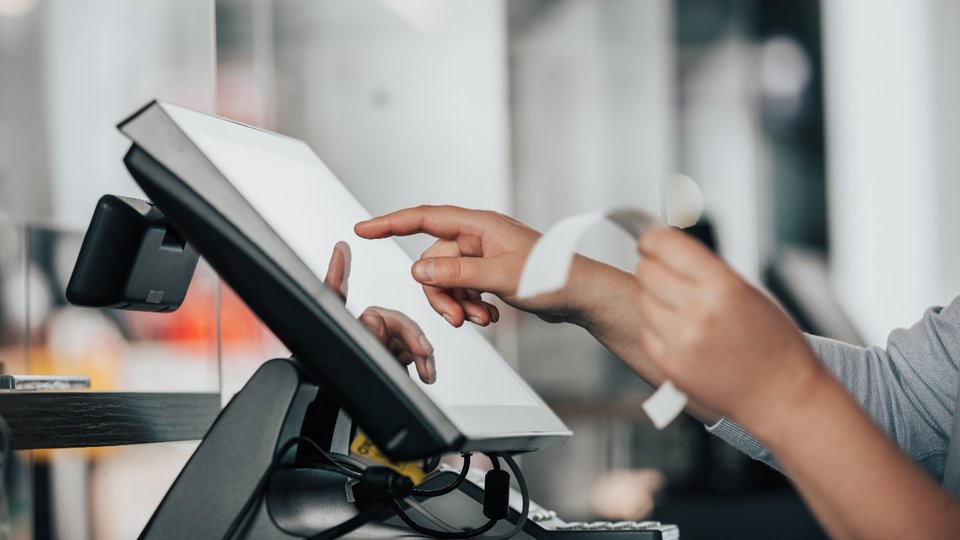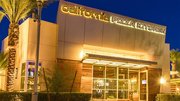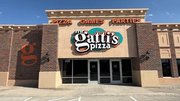POS
How to choose best multi-location POS system

June 27, 2024 by Brittany DeGroat — Digital Content Specialist, Star Micronics America
Selecting the right point-of-sale (POS) system is crucial for pizza businesses operating across multiple locations. The right system can streamline operations, ensure consistency across all sites, and provide real-time insights into your business's overall performance. However, choosing a POS system that fits a multi-location pizza operation's unique needs involves carefully considering several key factors.
Understanding multi-location POS systems for pizza businesses
A multi-location POS system allows centralized management of several pizza outlets. Unlike systems designed for single locations, these POS solutions handle complex operations like inventory synchronization, uniform pricing strategies and consolidated reporting across various locations. This is crucial for managing ingredient stock and promotions in pizza businesses.
Core features to look for:
- Cloud-based operations: Ensures real-time data access and updates across all locations.
- Centralized management: Manage pricing, promotions and stock from a single dashboard.
- Security: Robust data protection measures to safeguard customer and business data.
- Compliance: Meets regional compliance requirements for all operating locations.
- Customized to pizza industry needs: Features for order customization, integration with delivery services, and handling common pizza customizations.
Assessing your pizza business needs
Selecting the appropriate POS system for a multi-location pizza business involves a deep understanding of both your current operational needs and your future growth aspirations. Ensuring that the POS system fits into your overall business model is crucial for improving your workflow and the services you provide as you execute your long-term vision.
Identify business requirements
Understanding your specific requirements will guide your choice. Consider your business size, expected growth, the volume of transactions, and the complexity of your operations. Pizza businesses also need specialized features like delivery tracking and order customization.
Connectivity and scalability
A good POS system should connect seamlessly with your existing business applications, such as CRM systems, accounting software, or e-commerce platforms for online orders. It should also be simple to scale to accommodate new locations or increased transaction volume without significant new investments.
Technology incorporation
Utilizing new technologies, such as AI for demand forecasting and automated marketing tools, can significantly improve operational efficiencies and effectiveness at multiple locations. These technologies facilitate better data analysis, helping you streamline operations and quickly adapt to market changes.
Evaluating POS hardware compatibility for pizza shops
Choosing the proper hardware for your multi-location pizza business POS system is as crucial as selecting the software. This section focuses on evaluating the compatibility, durability, and technological adaptability of the POS hardware components that will best suit your pizza shop environments.
Hardware requirements
Determine the types of terminals, scanners, receipt and label printers, scales, and other peripherals compatible with the POS software. Choosing hardware that can operate under the rigorous conditions of a kitchen and withstand high usage is crucial for minimizing downtime and maintenance costs.
Technology advancement
Select hardware that incorporates the latest technological advancements and is supported by a manufacturer committed to keeping pace with industry trends. This ensures your POS system remains compatible with new software releases and market innovations, offering you a competitive edge in the fast-paced pizza business environment.
Durability and reliability
Opt for hardware known for longevity and minimal maintenance needs, especially in high-traffic pizza environments. This ensures continuous operations without frequent replacements or repairs, which can be costly and disruptive.
Implementation strategies for success in multi-location pizza operations
Implementing a new multi-location POS system can be a complex process, but with the right strategies, you can ensure a smooth transition that minimizes disruptions and maximizes the benefits of your new system. Here are some key strategies to help you successfully implement your POS system across multiple pizza locations:
Phased rollout
Implementing the new system in stages can help minimize operational disruption. Start with pilot locations to fine-tune the setup before rolling it out to all sites.
Training and support
Ensure that the POS provider offers comprehensive training to get the most out of your new system. You'll also want to train your employees. Continuous support is essential for resolving any issues quickly, minimizing the impact on daily operations and customer satisfaction.
Key considerations for POS system selection in the pizza industry
Choosing the right POS system for your pizza business involves more than just assessing features and functionalities. Considering several broader factors that will impact your business's long-term success and efficiency is crucial.
Vendor reputation and support
Research and compare potential vendors thoroughly. Look for providers with excellent reputations in customer service and ongoing support, as these are critical for businesses with multiple pizza outlets.
Cost vs. value
While cost is a significant factor, consider the overall value the system brings through efficiency gains, reduced error rates and potential sales increases from improved customer experiences.
Leveraging POS data for business growth in pizza chains
A multi-location POS system doesn't just streamline operations; it also generates a wealth of data that can drive strategic business decisions. By effectively leveraging this data, pizza chains can unlock significant growth opportunities.
Data-driven decisions
Utilize your POS system's data collection capabilities to make informed decisions that enhance business efficiency and profitability. You may want to look into software applications that incorporate AI-driven analytics. AI can quickly sift through vast amounts of data, identifying trends and patterns that can inform strategic decisions. AI algorithms can help forecast sales, optimize inventory levels, and even predict staffing needs based on historical data and predictive modeling.
Customer insights and personalization
Analyze customer behavior across different locations to tailor marketing and sales strategies, boosting customer satisfaction and loyalty. AI tools enhance this process by segmenting customers based on purchasing behaviors and preferences, allowing for highly personalized marketing campaigns and promotions.
Final thoughts
Choosing the right multi-location POS system is pivotal for your pizza business. It requires careful consideration of your current needs and future growth plans. A well-chosen system will help you manage your inventory, synchronize pricing, and gain valuable insights through data analysis, positioning your business for sustained success in a competitive market. Investing in the right multi-location POS solution today will pave the way for a more efficient and profitable tomorrow.
About Brittany DeGroat
Included In This Story
Star Micronics
Always Leading, Always Innovating
Star Micronics, a world-leading POS and labeling solutions provider, has designated a portfolio of printing, secure cash management, and customer engagement tools for any retail and hospitality establishment with a POS or mPOS environment.
 ChatGPT
ChatGPT Grok
Grok Perplexity
Perplexity Claude
Claude









